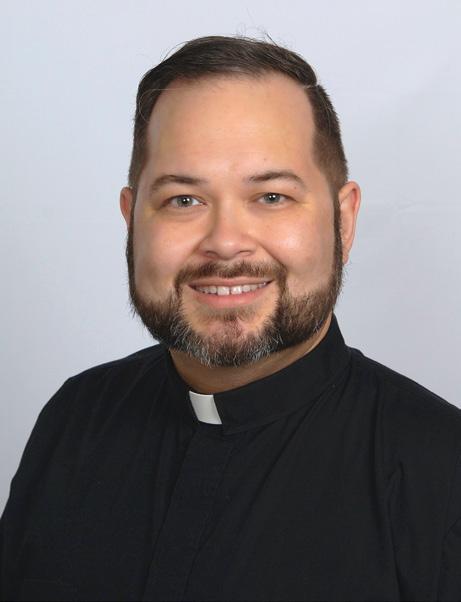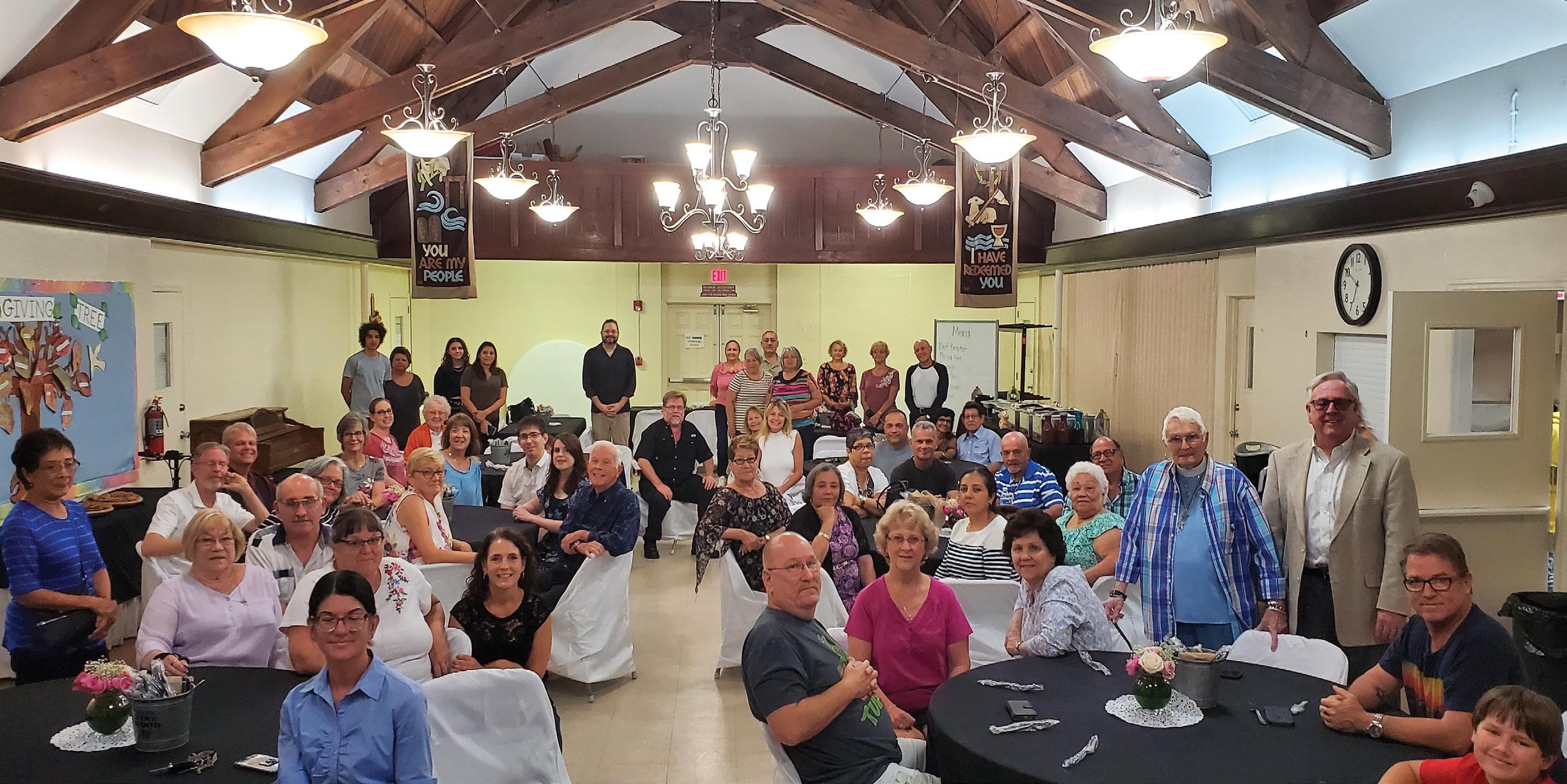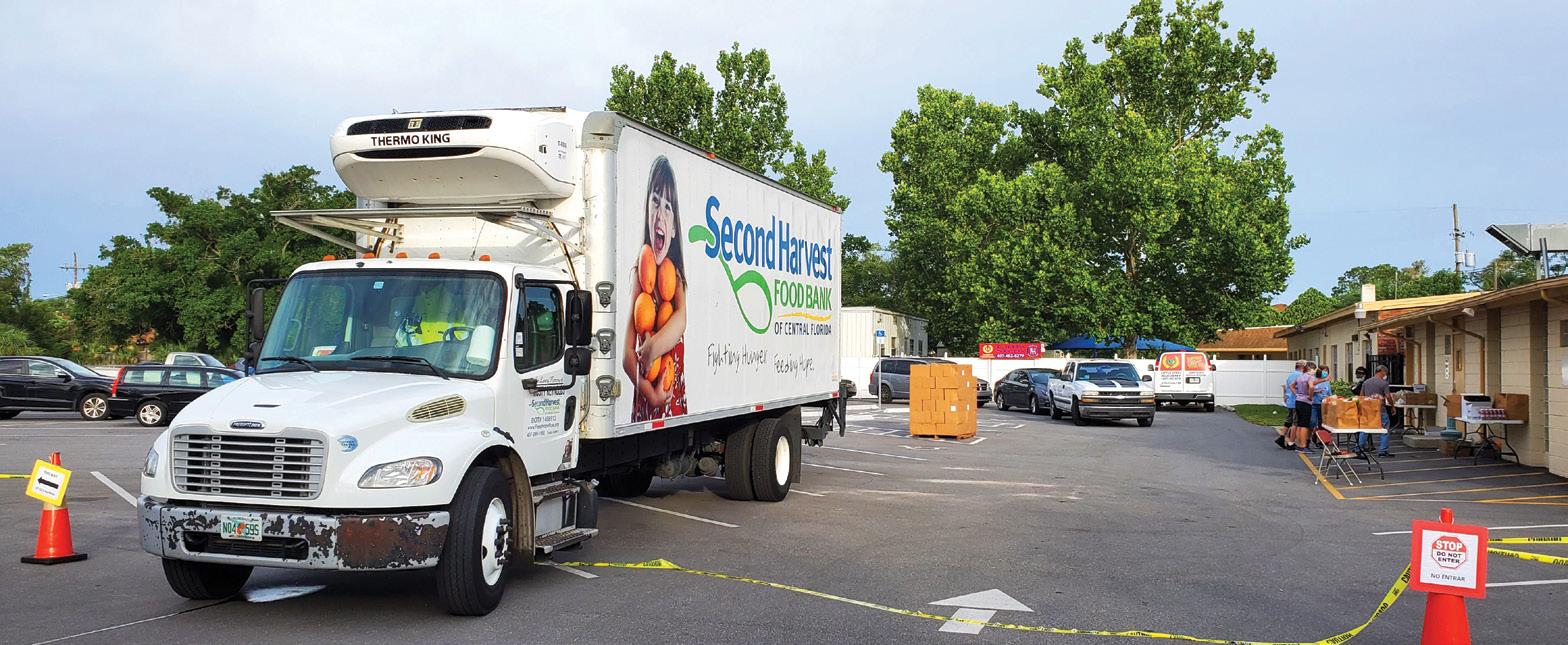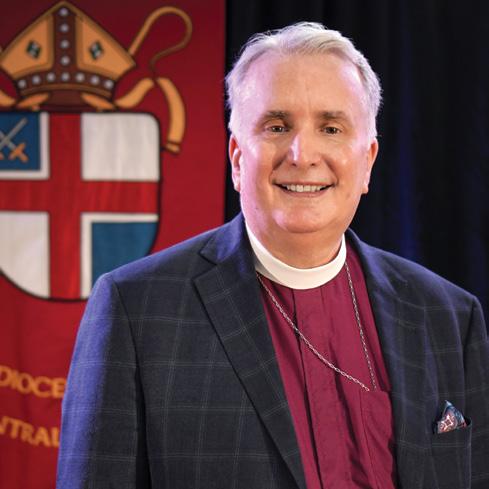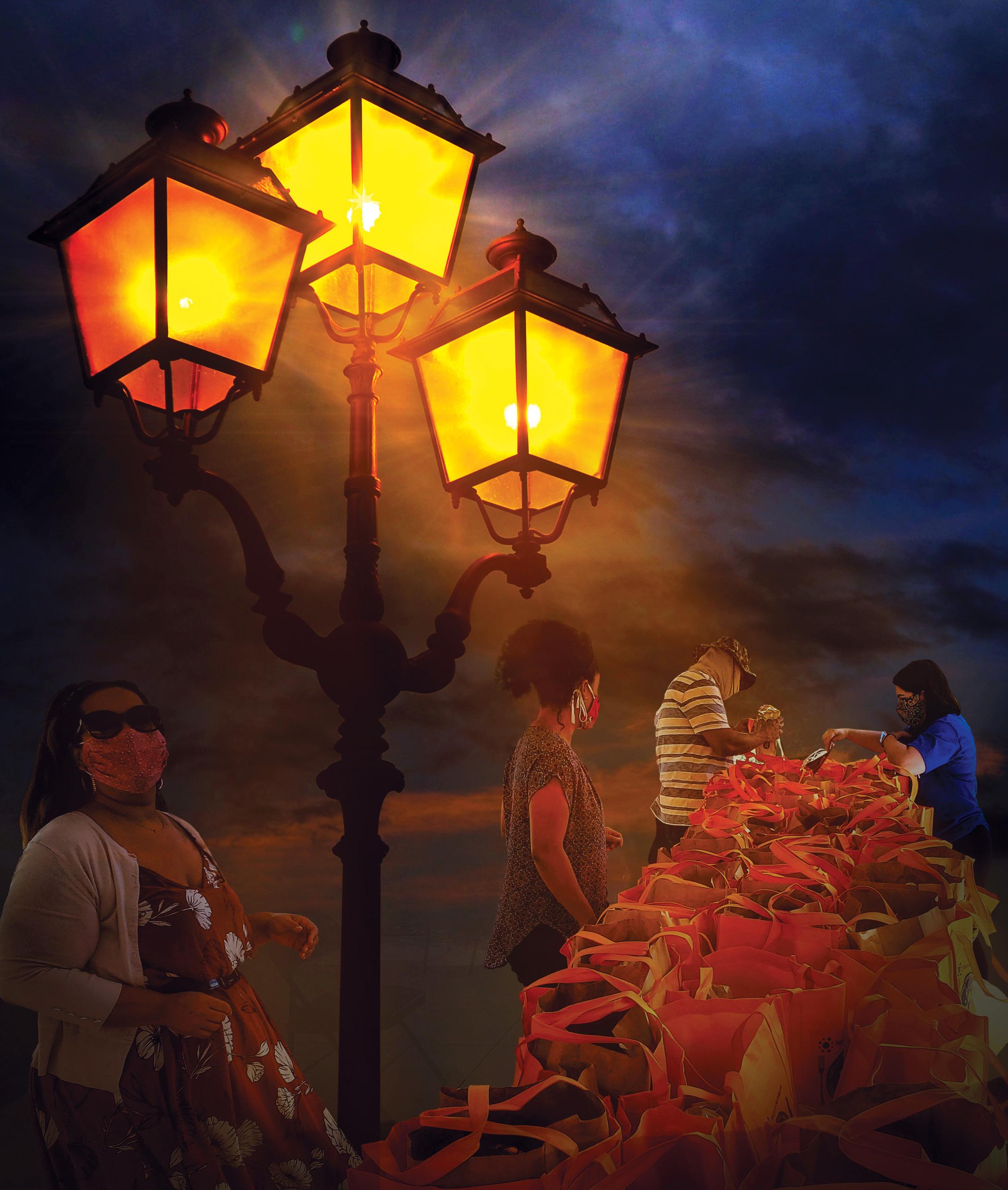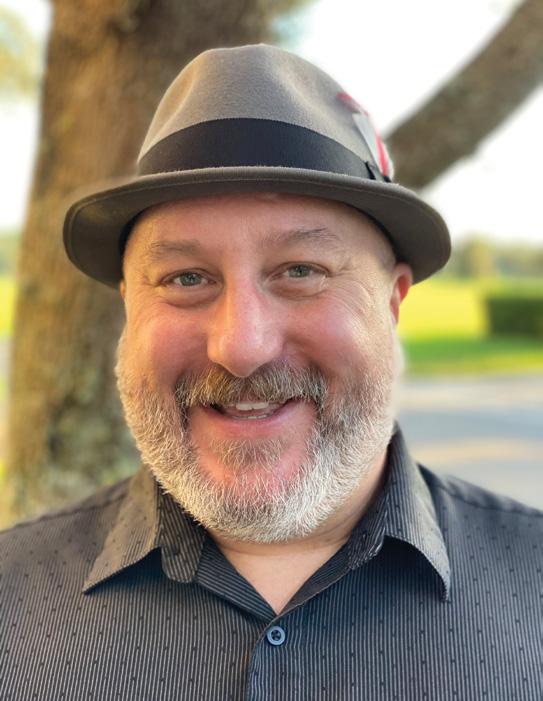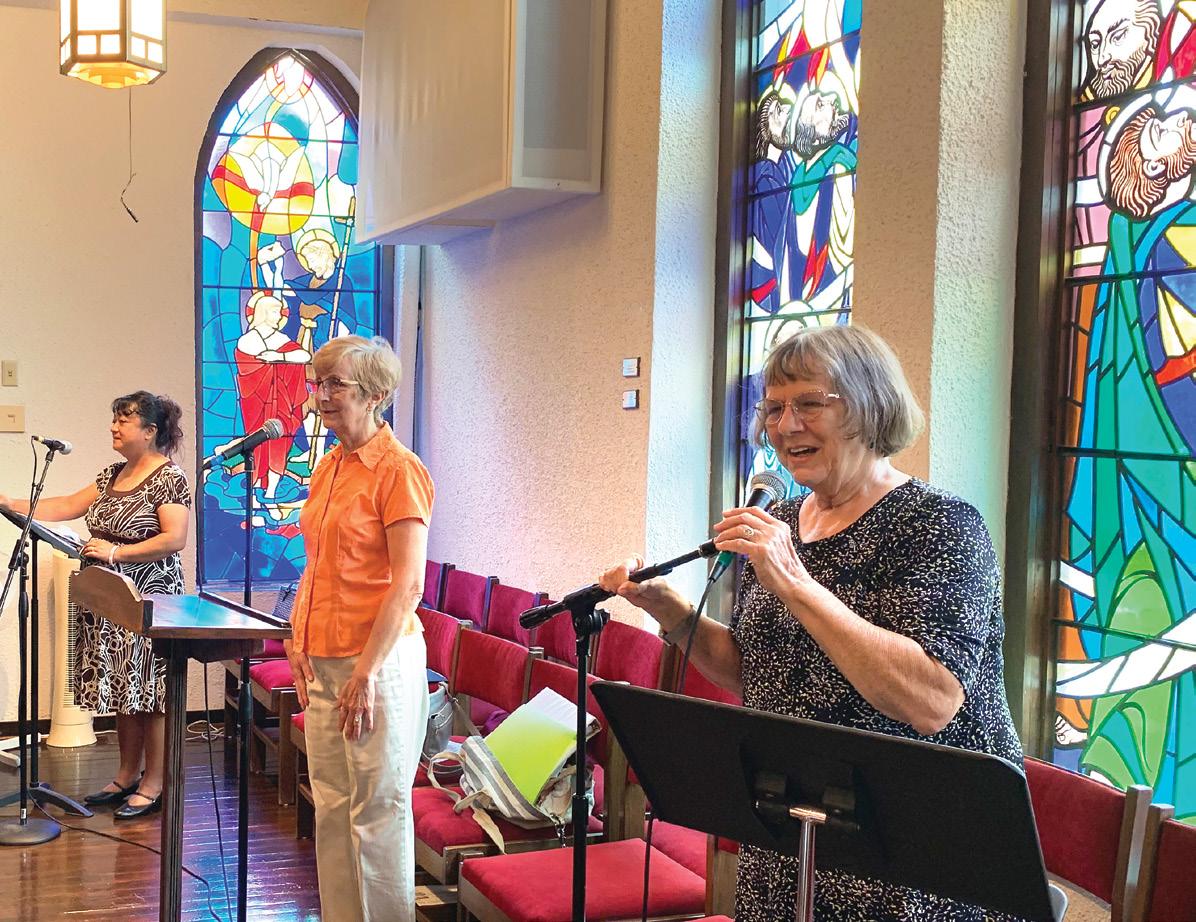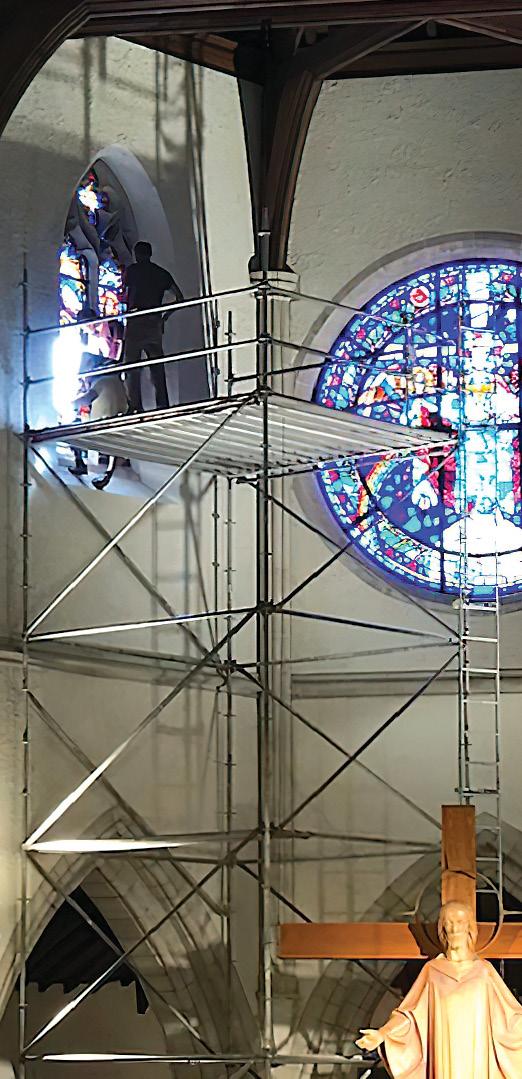
5 minute read
Love: The Focus of Race Reconciliation Events at St. Peter’s
After the killing of George Floyd at the hands of Minneapolis police in May, images on newscasts, social media and news websites emphasized one thing: hate. However, after a conversation with a black staff member following the George Floyd incident, The Rev. Jeremy Bergstrom of St. Peter’s Episcopal Church, Lake Mary, who is white, decided on an alternative approach using a different four-letter word: LOVE.
Earlier this month, St. Peter’s hosted a race reconciliation series that brought together members of the congregation and outside pastors to raise awareness of discrimination, neglect and perceptions in the black community. “We love them,” Bergstrom said, referring to the black members of his staff and congregation. “To hear their pain and to think we (the leadership and other parishioners) don’t care – they are wrong. Our toxic society has told them we don’t care. And they have every reason to believe it. In our ignorance, we don’t know they are having such a hard time.” The series of events kicked off with a listening session during a combined Sunday worship service at St. Peter’s. Black members of the congregation spent 60-90 minutes sharing stories, both horrific and heartbreaking, of living in the United States. “Gut-wrenching, all these stories,” said Bergstrom, who heard many of them while preparing for the series of events. “It was a valuable learning experience for me, walking with them and feeling with them. I have not experienced what they have experienced. They have a wide variety of experiences and perspectives on this. “These people are sweet, wonderful people,” he continued. “To hear about children being excluded from birthday parties, that’s horrible. We’re not talking about lynchings here; we’re talking about isolation and the pain of being left out.” The last event featured Célestin Musekura, a Rwandan based in Dallas who does tribal/racial reconciliation ministry in Africa and the U.S. Musekura’s family and friends were murdered while at church during the Rwandan genocide that lasted a little over three months in 1994. Astonishingly, he reconciled with the murderers of his family and village. Today he financially supports the children and grandchildren of the murderers. “Nobody has more credibility than that guy,” said Bergstrom, referring to reconciliation. In the mid-1990s, Musekura, a Baptist minister who earned his Ph.D. from Dallas Theological Seminary,,
Advertisement
Fr. Bergstrom and Rev. Aitcheson
founded African Leadership and Reconciliation Ministries to train leaders in the process of restorative justice. Last year in a Q&A with Faith and Leadership, Musekura said, “In restorative justice, we restore the brokenness.” The middle event, held the Tuesday after the Sunday event, featured The Rev. Michael Aitcheson of Christ United Fellowship, a Presbyterian Church of America (PCA) church plant in Orlando, who joined Bergstrom for a Q&A session on the topic after the two preached on Acts 17:22-31 and 1 Corinthians 12:12-27, which focus on unity and diversity in the body of Christ. Aitcheson, married with four children, was raised in Miami, Florida, and awarded a football scholarship to the University of Kentucky, where he received a bachelor’s in social work. In 2011 he earned a Master of Divinity at Reformed Theological Seminary and was ordained a PCA teaching elder in 2013. “Pastor Aitcheson is a younger black man who has all the experience and education on these issues that I don’t have, growing up in the upper Midwest where a lot of white people are from,” said Bergstrom. “He is extremely knowledgeable about this, biblically sound and well educated.” Bergstrom first conceived the idea of a reconciliation series after he asked a young black staff member how they were doing following the George Floyd incident. The individual told him it was a personal breaking point. They also shared a few stories about what they had experienced growing up in America and how the Floyd incident brought suppressed emotions and frustrations to the surface. His staffer’s response shocked Bergstrom. Soon afterward he spoke with other blacks on staff and in his congregation. He spent three hours listening to their stories. At the end, he asked them, “How are we going to do this with the rest of the congregation? They need to hear your stories, and they need to love on you for a while.” The idea took months to plan. Those willing to share their experiences were still concerned about being judged and condemned. Instead the group met with the vestry first. “They weren’t ready to share with the congregation,” said Bergstrom. “They were worried that people wouldn’t care about them. They thought people might think they were complaining.” But that wasn’t the case. After the vestry meeting, the idea of sharing their stories with the congregation gained traction and evolved into the three events. DIOCESAN FAMILY “Our conviction was that society has been doing these types of conversations in the abstract,” Bergstrom said. “We see the extremes portrayed in the news. We wanted to have a conversation with Christians in the context of the church between people who know and love each other. “We didn’t base this on education alone, but with relationships and sharing their experiences with their brothers and sisters in Christ, who share this common bond as members of the body of our Lord.” As with any well-thought process, clear end goals were established. “First,” Bergstrom said, “that people will get a deep awareness or for the first time understand they are, when in Christ, a new creation. Old things are past, new things are to come. This is the foundation of our unity in Christ. That is the primary goal. “Second will be a deeper love for one another in Christ that flows out of that new creation and forgiveness of sins.” As those goals take root in the members of St. Peter’s, Bergstrom believes the messages of love, racial reconciliation and forgiveness will spread into the community. “I am a firm believer in the power of the gospel in the individual heart, and that’s how we change this (injustice), one person at a time,” said Bergstrom. “The church needs to be an instrument of forgiveness and reconciliation so that we can forgive past injustices.

